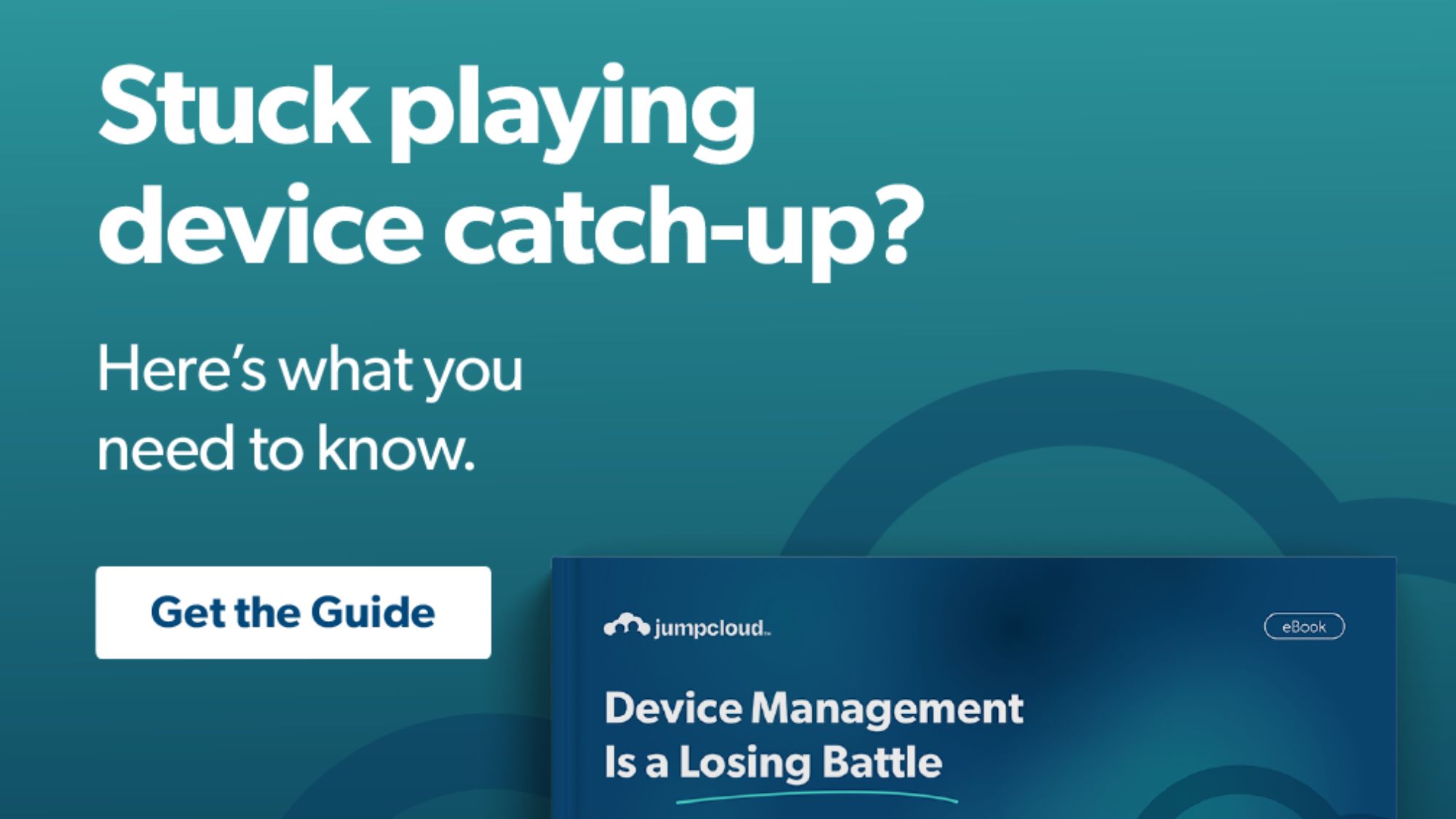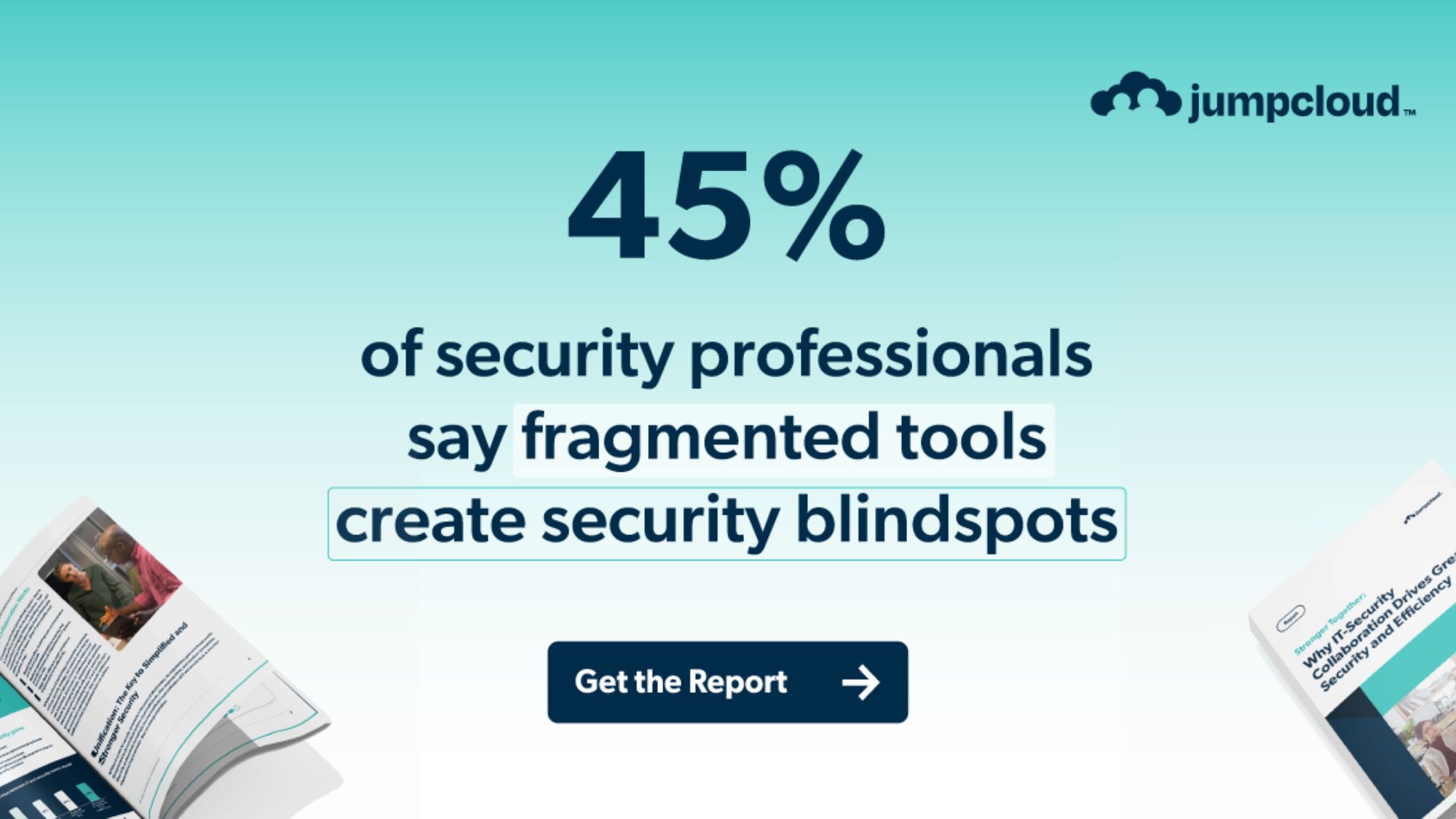BBC Micro Bit specs, features and release date: BBC begins rolling out 1m Micro Bits to UK schools
BBC launches microcomputer for schoolchildren after multiple delays
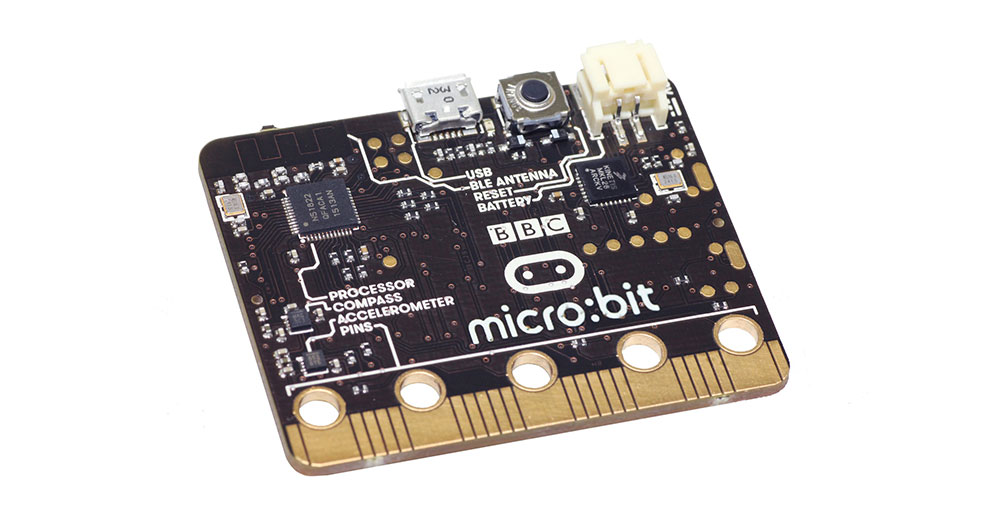

The Micro Bit is a microcomputer, designed by the BBC and a selection of partners, and is part of the corporation's effort to inspire children to understand computer programming, and open their minds to the possibilities programming presents.
It was released on 22 March 2016, when the BBC began by giving away one million of the microcomputers to schoolchildren.
In this article, we'll provide a run down of the device's specifications, features and the latest news about it.
If you're interested in reading more about microcomputers and projects they can be used for, check out our article on the Raspberry Pi, and our20 top projects to try yourself.
Latest news
22/03/2016: The BBC has begun shipping one million Micro Bit computers to UK schools after repeated delays.
The microcomputer was due to roll out at the beginning of the current UK academic year in October 2015, but issues with the unit's power supply led the corporation to postpone its release. It was then delayed again in January for "fine-tuning".
The pocket-sized Micro Bit is a descendant of the BBC Micro, a low-cost computer that was rolled out across British schools in the 1980s, and played a role in turning a generation of schoolchildren into pioneering computer programmers.
Get the ITPro daily newsletter
Sign up today and you will receive a free copy of our Future Focus 2025 report - the leading guidance on AI, cybersecurity and other IT challenges as per 700+ senior executives
The BBC is keen for the Micro Bit to help inspire today's youngsters, who are familiar with smartphones and social media, but not necessarily what makes them work, by presenting them with a powerful computer that will not do anything until they programme it to do so.
Though the microcomputer bears some similarity to the Raspberry Pi, which has seen great success as an appliance for hobbyists and tech enterprises, the BBC is pitching the Micro Bit as an entry-level tool for children with no coding experience at all.
Children will be able to do all sorts of things with the device, from programming its 25 LEDs to display simple patterns, to instructing robots to follow, to creating fitness trackers.
The BBC Micro Bits are being delivered nationwide to every year seven student in England and Wales, every year eight student in Northern Ireland and all S1 students in Scotland. They will also be made available to home-schooled students over the coming weeks.
Teachers are also being sent their own Micro Bits to help them get involved in teaching Micro Bit lessons to children during the school year.
The microcomputers will not be school property, but will be the students' own devices. The BBC said this will allow students to hold onto their device as they move up through their school, and to continue build on their ideas in school and outside of it.
"The BBC Micro Bit has seemingly limitless potential, especially when paired with other hardware, and we can't wait to see what students will do with it," said Sinead Rocks.
"They've already come up with all kinds of ideas during testing and at events around the country - some ideas help solve some of life's daily challenges, some could have business potential, and others are just great fun. Teachers have been quick to embrace it too, which is so important to the success of the project, and they have already made valuable additions to our online resources."
Tony Hall, director-general of the BBC, added: "The Micro Bit has the potential to be a seminal piece of British innovation, helping this generation to be the coders, programmers and digital pioneers of the future."
In the Micro Bit packs schoolchildren will receive will be a Micro Bit, a USB cable, and a battery holder.
Teachers will also receive a 32-page quick start guide, which contains some instructions for basic operations the Micro Bit's LEDs, buttons, and sensors can perform.
Student and teachers will primarily access tutorials and guidance on how to use their new Micro Bits from its official website.
The Micro Bit project has been made possible by a partnership between the BBC 31 other organisations, including ARM, element14, Lancaster University, Microsoft, Samsung, Technology Will Save Us and the Wellcome Trust.
21/01/2016: The BBC's microcomputer for schools has been delayed again.
The corporation had planned to distribute the Micro Bit to one million schoolchildren last October, but in September it pushed back the device's release until early 2016 due to issues with its power supply.
Yesterday, the BBC admitted it now expects to send units out to teachers shortly after the half-term holidays in February.
However, it did not confirm whether this delay would affect the number of units in its initial supplement.
"The main issue has been some fine-tuning," BBC Learning executive Cerys Griffiths told the BBC.
"We have created hardware, it's very complex, it's very sophisticated, it's very new.
"What we were really hoping for was that the teachers would get their devices before Christmas. But our commitment to teachers has always been that we would get them the devices first to give them time to play and get familiar with them."
While the BBC has been busy getting its microcomputer off the ground, the success story that inspired it, the Raspberry Pi, received its latest configuration late last year in the form of the 4 Raspberry Pi Zero.
18/09/2015:The release of the BBC's Micro Bit computer has been delayed, following issues with its power supply.
Although the problem only affected "a small number of devices", the launch has been pushed back to ensure that any issues can be ironed out.
"As a result of our rigorous testing process, we've decided to make some minor revisions to the device," the BBC said in a statement, adding that "getting it right for children and teachers before we manufacture one million units is our priority".
The microcomputers were initially scheduled to be rolled out in October, to let new year seven pupils acclimatise to secondary school.
However, the devices will now be sent out around the Christmas holidays, according to a BBC spokesman, who said that"we're expecting to start sending them out to teachers before Christmas and to children early in the New Year".
07/07/2015: The BBC has unveiled the final design of its education-focused microcomputer, the Micro Bit.
The single-board computer, which measures 4 x 5 cm, is part of the BBC's Make It Digital initiative, designed to encourage kids into coding.
As part of the initiative, up to one million devices will be provided - free of charge - to 11 and 12 year olds in Year Seven.
The project is inspired by the recent home coding and computing revolution set off by the Raspberry Pi, which was in turn inspired by the original BBC Micro computers of the 1980s.
However, rather than being a direct competitor, the Micro Bit is instead being billed as a companion device to existing machines like Raspberry Pi, Arduino and Galileo.
Whereas devices like the Raspberry Pi can function as fully-fledged desktop computers, the Micro is geared more directly to maker' projects.
It lacks the full-size USB ports or display outputs seen on competitors, but it does have an array of 25 red LED lights, two programmable buttons, onboard accelerometer and magnetometers, and Bluetooth for connecting to PCs and mobile devices.
It also has five Input/Output rings, which can transmit data and commands to other devices or sensors.
All of the Micro Bit's elements can be programmed via the Micro Bit website, available later in the summer. The code can then be saved and tested within the web app before being transferred to the device.
The Micro Bit, which will be available in a range of colours, also functions as a standalone device for kids looking to explore wearables and the IoT.
However, although initial prototypes featured slots for a small watch battery to power the device, the final version instead features a removable battery pack, which accepts AA cells.
The BBC said "The initial prototype utilised a smaller battery, however in reviewing the design and examining the health and safety implications of using small batteries for a young audience, where siblings may be able to access the device, the partnership took the decision to re-engineer this element."
The devices will be arriving in schools from late October, allowing children to settle in, and teachers to incorporate the devices into the curriculum.
In addition to this rollout, the BBC has said that the Micro Bit will go on sale to the general public, both in the UK and overseas, before the end of the year.
Sinead Rocks, head of BBC learning, has high hopes for the potential boom the Micro Bit could cause: "as the micro:bit is able to connect to everything from mobile phones to plant pots and Raspberry Pis, this could be for the internet-of-things what the BBC Micro was to the British gaming industry."
In addition to being funded by the BBC, the Micro Bit has external funding and assistance from almost 30 partner organisation. One of the biggest contributors is chip manufacturer ARM, who provided the mbed hardware and software dev kits.
ARM already has strong ties to the BBC, as the partnership between Acorn computers and the broadcasting organisation that created the initial BBC Micro also led to the creation of ARM.
CEO Simon Segars extolled the programme's virtues: "Technology is now as much a part of childhood as riding a bicycle or kicking a football but going from user to innovator is something we still need to encourage.
"The BBC and Acorn Computers, where ARM technology was first created, came together 35 years ago to develop the BBC Micro and that inspired the engineers now at the forefront of shaping our increasingly connected world.
"The new BBC micro:bit has even greater potential because it can inspire boys and girls toward a career in technology at a time of unprecedented demand for science and engineering skills across all areas of the global economy."
BBC Micro Bit specs and features
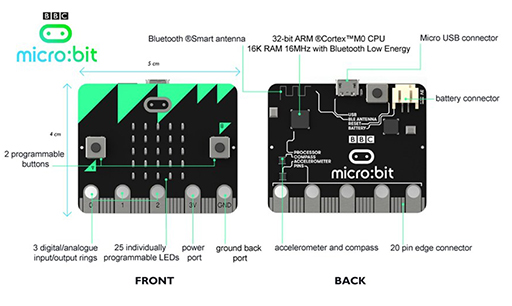
The BBC Micro Bit is a compact machine with colossal potential.
It measures just 40mm by 50mm slightly smaller than a credit card.
It is powered by a Nordic Semiconductor nRF51822 16MHz CPU with an ARM Cortex-M0 microcontroller, which includes 16KB RAM and 256KB flash memory.
The CPU is capable of 2.4GHz Bluetooth low energy wireless networking, while the ARM core has the capability to switch between 16 MHz or 32.768 kHz clock rates, according to pre-release tests.
Through Bluetooth low energy, a power-friendly version of Bluetooth wireless technology, the Micro Bit can be connected to the internet, as well as Bluetooth radio between the frequency range 2402MHz to 2480MHz.
There's a three-axis accelerometer (Freescale MMA8652) and a three-axis magnetometer (Freescale MAG3110), the latter acting as a compass.
Other input/outputs include 25 red LEDs arranged in a five by five grid, two programmable buttons, a MicroUSB connector, a battery connector, and 23-pin edge connector.
The Micro Bit can be powered directly from your computer via USB. When your computer is not to hand, it will need two AAA 1.5V batteries to operate.
BBC Micro Bit features
The Micro Bit's specs make it a powerful little machine, with all kinds of potential for its target age group of 11- to 12-year-olds to experiment with.
At present, the microcomputer can be programmed via four integrated development environments: CodeKingdoms Javascript, Microsoft Touch Develop IDE, Microsoft Blocks and MicroPython.
CodeKingdoms and Touch Develop offer children graphical drag-and-drop interfaces to build computer commands, which is where most beginners may choose to start. Blocks is a text-based language, which comes pre-installed with a library of Micro Bit commands. And Python is a robust editor used by professional software developers.
The primary portal for programming the Micro Bit is the official website, which is where students, teachers and hobbyists will find a selection of tutorials and additional information about the device.
The unit's 25 LED lights can be programmed to flash messages, scroll text or even display simple line animations.
Its two programmable buttons can be used to control audio and video playback, or play straightforward games.
Meanwhile, its built-in compass and accelerometer can detect which direction it is facing. This allows the Micro Bit to be used as the command and control unit for, say, a converted RC car or a robot.
Its input/output pins enable additional devices like sensors to detect heat or proximity, to be attached to the unit.
Finally, its low energy Bluetooth connection means it is capable of interacting with other devices and, of course, connecting to the internet.
There are many different things you can do with the BBC Micro Bit. We'll be following its development as well as projects created with it that you can try yourself in the weeks and months to come.
Adam Shepherd has been a technology journalist since 2015, covering everything from cloud storage and security, to smartphones and servers. Over the course of his career, he’s seen the spread of 5G, the growing ubiquity of wireless devices, and the start of the connected revolution. He’s also been to more trade shows and technology conferences than he cares to count.
Adam is an avid follower of the latest hardware innovations, and he is never happier than when tinkering with complex network configurations, or exploring a new Linux distro. He was also previously a co-host on the ITPro Podcast, where he was often found ranting about his love of strange gadgets, his disdain for Windows Mobile, and everything in between.
You can find Adam tweeting about enterprise technology (or more often bad jokes) @AdamShepherUK.
-
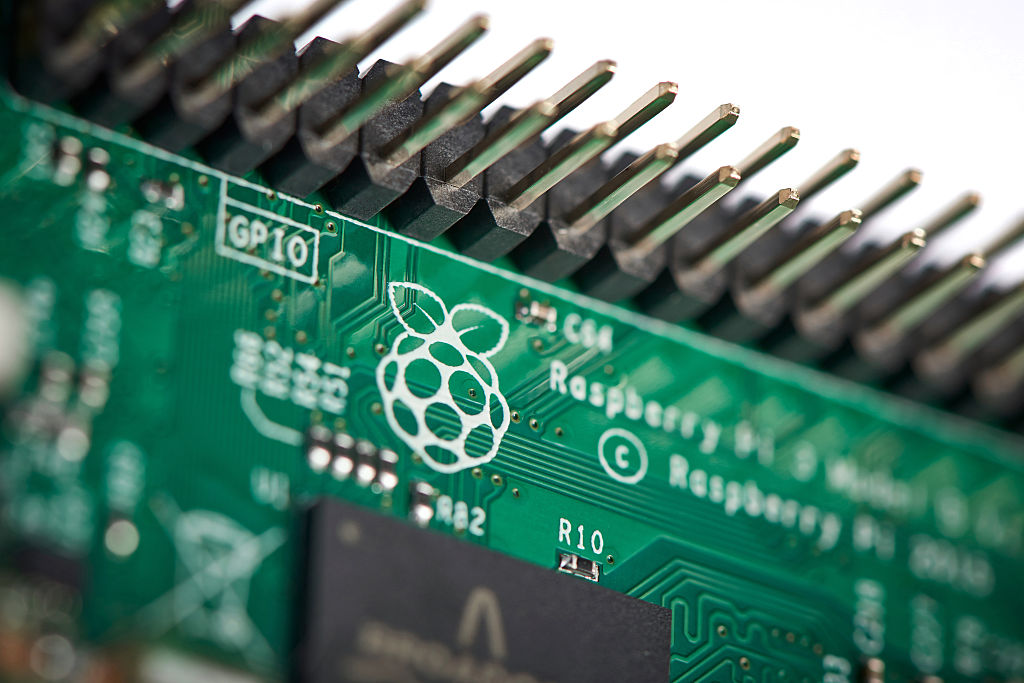 Arm acquires stake in Raspberry Pi in bid to drive IoT development
Arm acquires stake in Raspberry Pi in bid to drive IoT developmentNews The deal confirms a long-standing Raspberry Pi commitment to Arm chips
By Emma Woollacott
-
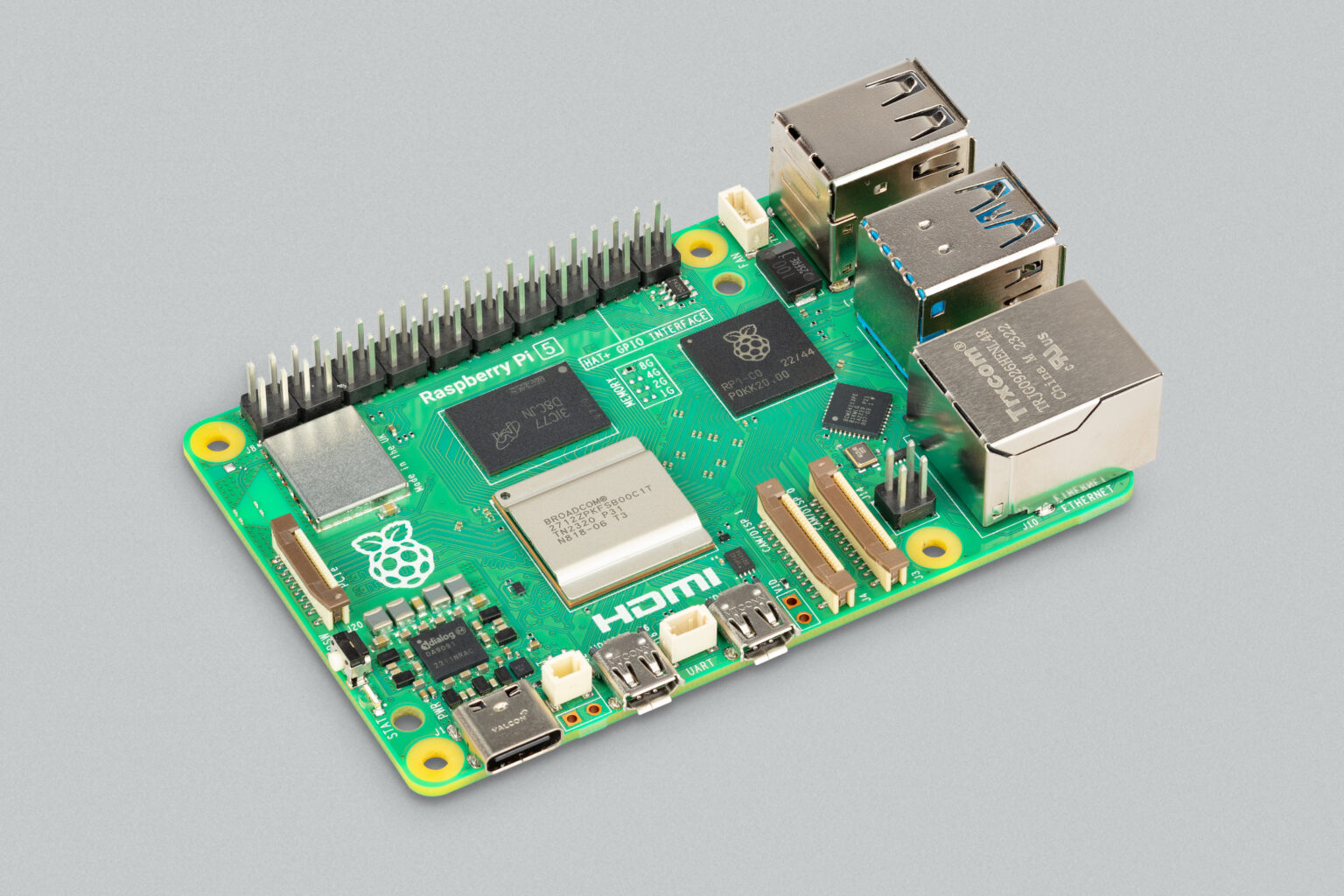 Raspberry Pi 5: New model is “2-3 times more powerful” than previous generation
Raspberry Pi 5: New model is “2-3 times more powerful” than previous generationNews The new Raspberry Pi 5 will provide a “no-compromise user experience”, the firm said
By Ross Kelly
-
 Sony invests in Raspberry Pi to strengthen edge AI offering
Sony invests in Raspberry Pi to strengthen edge AI offeringNews The move follows longstanding ties between the two firms
By Ross Kelly
-
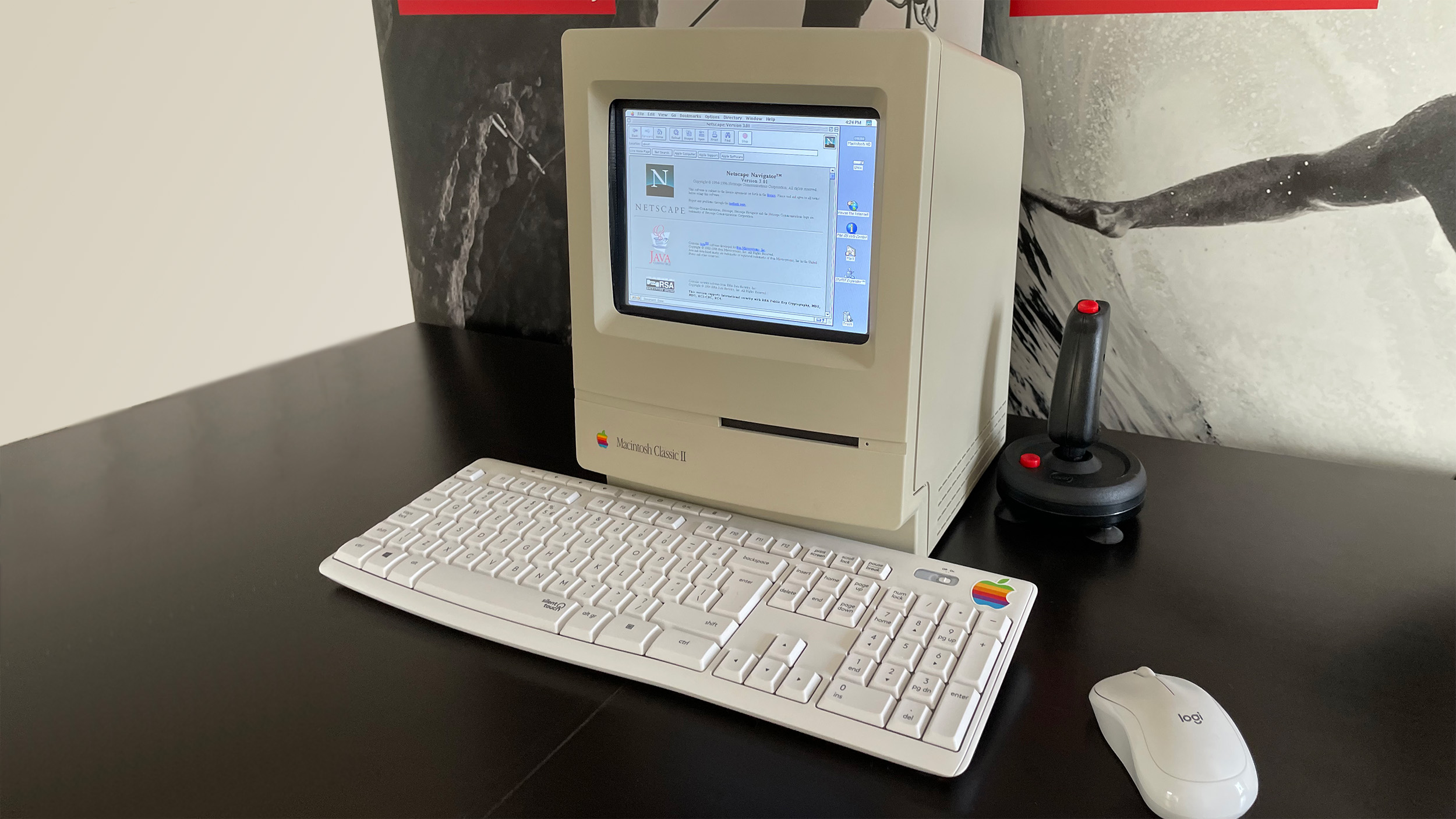 Return of the Mac
Return of the MacIn-depth Developer Jarosław Mazurkiewicz explains the creative process behind MacintoshPi and why he wanted to bring a classic Mac back to life
By David Crookes
-
 Raspberry Pi ten years on: Breathing new life into retro machines
Raspberry Pi ten years on: Breathing new life into retro machinesIn-depth A full decade after the Raspberry Pi first hit shelves, the microcomputer is reviving older PCs and games consoles
By David Crookes
-
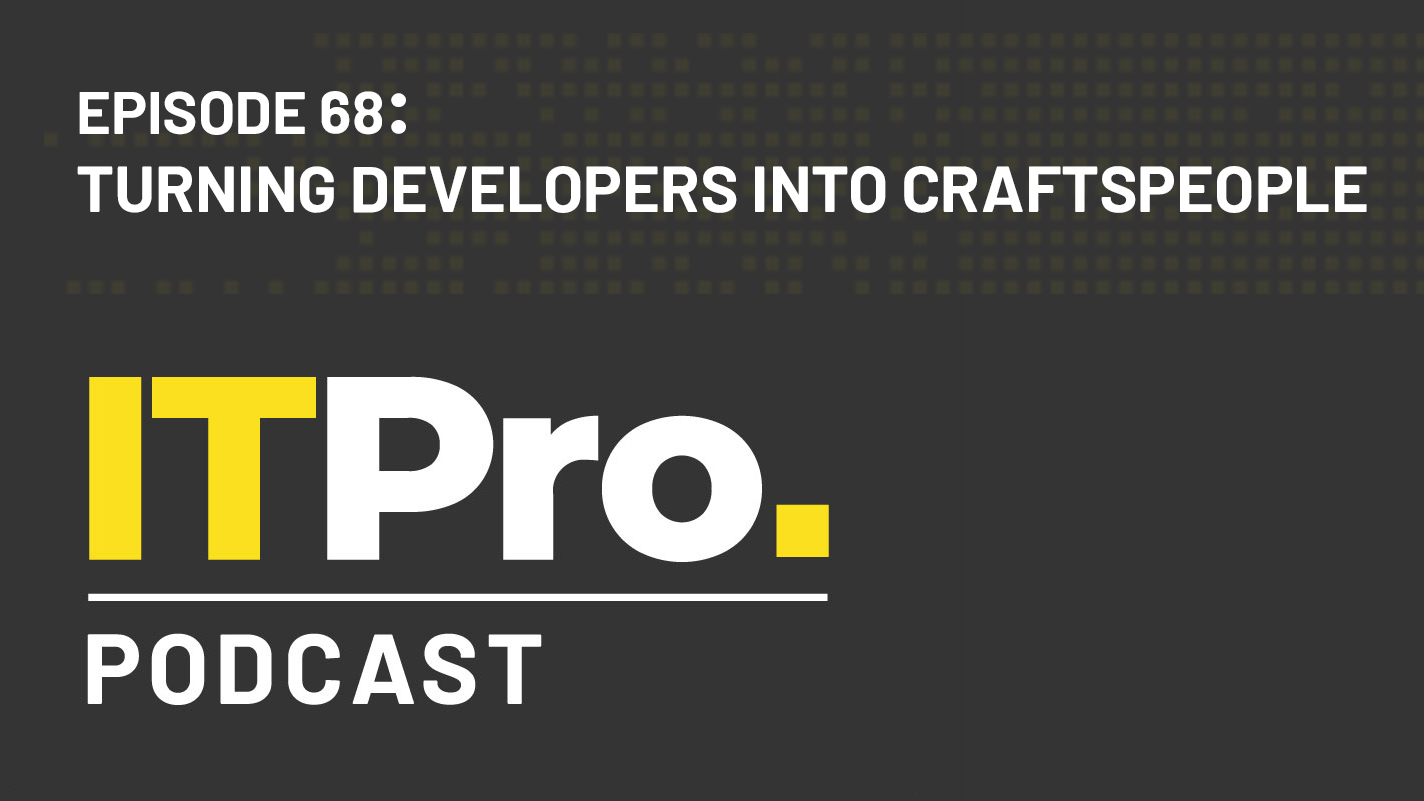 The IT Pro Podcast: Turning developers into craftspeople
The IT Pro Podcast: Turning developers into craftspeopleIT Pro Podcast Making software is about much more than pushing code, explains Raspberry Pi founder Eben Upton
By IT Pro
-
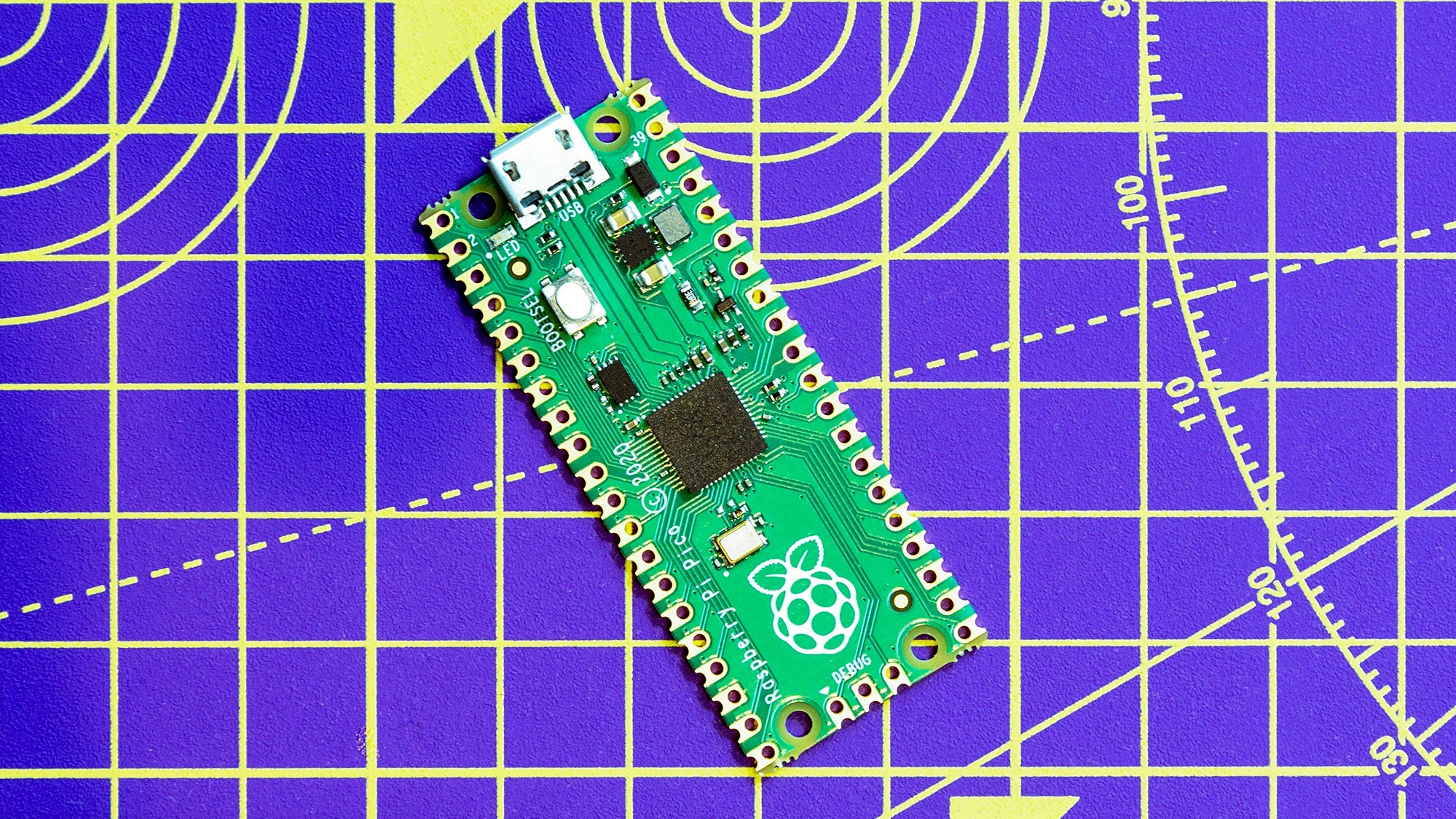 What is the Raspberry Pi Pico?
What is the Raspberry Pi Pico?In-depth Introducing the latest $4 member of the family of single-board microcomputers
By Keumars Afifi-Sabet
-
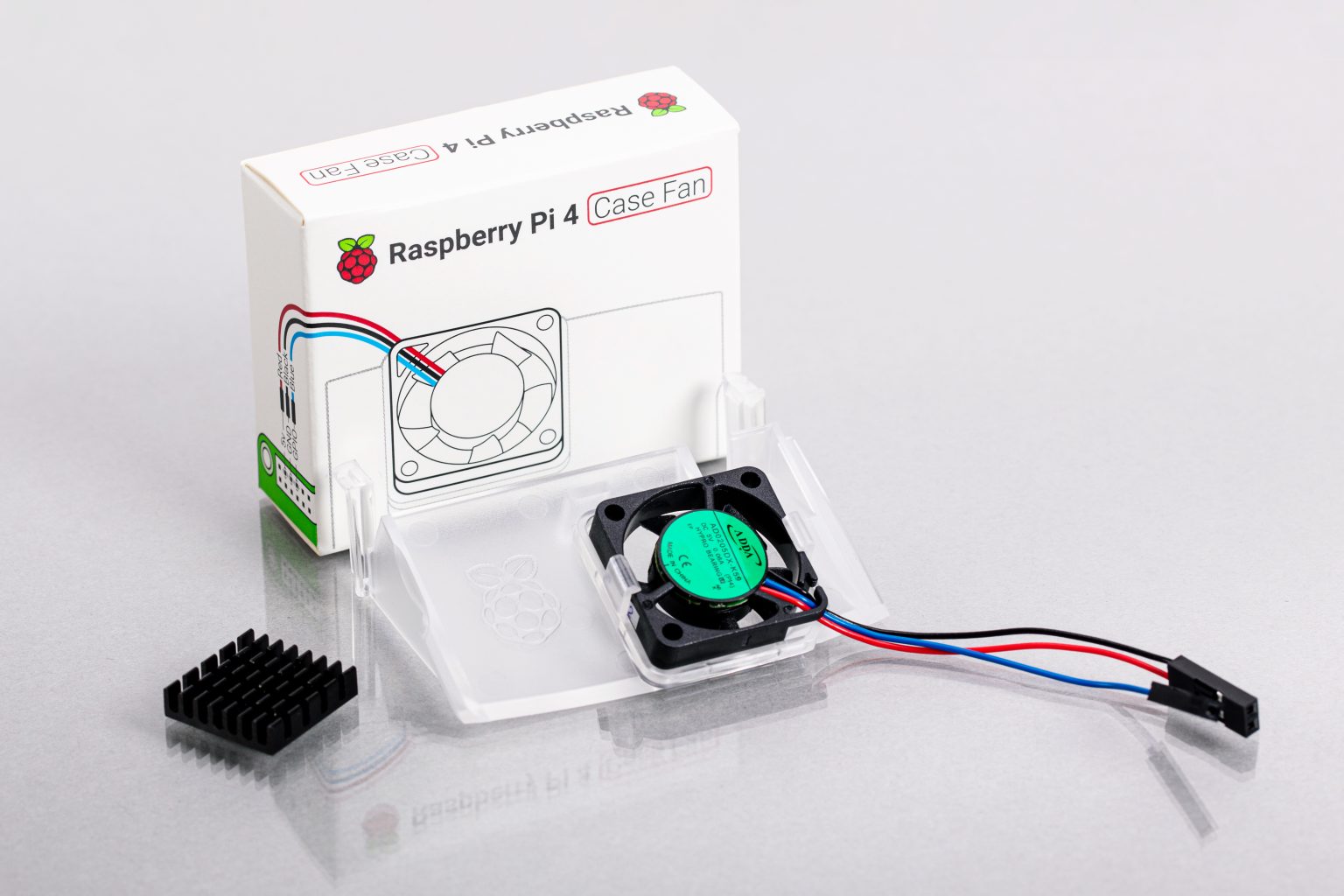 Raspberry Pi 4 gets an official case fan
Raspberry Pi 4 gets an official case fanNews The £4.50 fan will prevent the board's ARM Cortex-A72 processor from overheating
By Rene Millman
